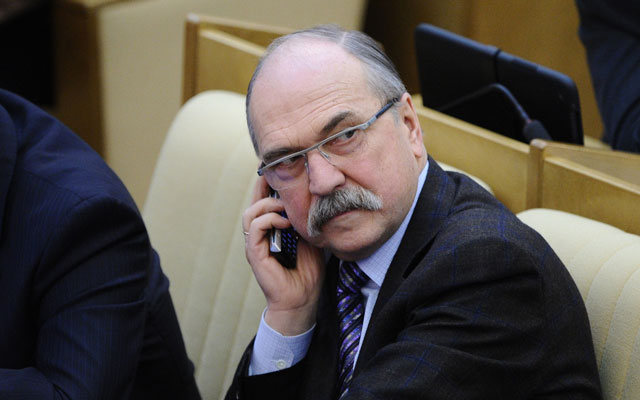Russia: Putin Loyalist Going Down in Flames
Ariel Cohen / Benjamin Tigay /
Vladimir Pekhtin, chairman of the Duma Ethics Committee, hid undisclosed luxury properties in Florida valued at nearly $2 million while proclaiming his anti-American credentials, according to Russian anti-corruption crusader Alexei Navalny.
As early as 2007, Pekhtin and his son bought an oceanfront luxury apartment in Miami. Navalny’s staff searched Miami-Dade County government websites and found deeds and tax records with Pekhtin’s signature. Last December, Pekhtin granted his share in the condo to his son in a move that suggests an attempt to conceal his ownership. Navalny reasonably suggests that a Duma deputy could not possibly afford such property, and that Pekhtin is hiding it from tax authorities.
Pekhtin was the lead author of the proposed Duma Deputy’s “Code of Ethics,” according to Navalny. The draft code states that “failure by any Duma deputy to submit a declaration of his income, assets, and liabilities … is a violation of the laws of deputy ethics.” By not disclosing his property in Miami, Pekhtin violated the ethics code that he drafted himself.
Pekhtin’s haphazard response only served to make matters worse. He denied owning the property, alleging that his son owns it. Then, in an exchange with Izvestia, Pekhtin categorically denied owning any property abroad until he slipped:
Reporter: Tell me, in principle, do you have any property outside of Russia?
Pekhtin: Well, practically nothing.
Reporter: Practically? So yes or no?
Pekhtin: No, I do not! I’ve lived here all my life in Russia.
Last Wednesday, Pekhtin asked to take leave from his chairmanship of the Duma Ethics Committee, clinging to hope that an investigation will prove his “innocence.”
Navalny’s swift and thorough investigation into Pekhtin’s personal assets raises the question of whether someone within the circles of power wanted Pekhtin gone—and pointed in the right direction.
Navalny’s allegations came on the same day that President Vladimir Putin submitted a bill banning officials from holding foreign assets. This is a part of Putin’s much heralded plan to force officials and businessmen to bring money back to Russia from offshore havens like the Cayman Islands. The Global Financial Integrity report released this month found that $211.5 billion illegally left Russia from 1994 to 2011.
All this comes at a time when Russia’s ruling elite deals with massive corruption scandal fallouts, a drop in public support, and infighting.
The Kremlin hired Goldman Sachs in January to improve the country’s business image and attract investors. Good luck. The Human Rights Foundation called the move “mind-boggling,” asking why Goldman Sachs would help “one of the world’s most corrupt governments.”
Russia’s image as an investment magnet, however, may be beyond saving, at least for the foreseeable future. When Russian historian Nikolai Karamzin was asked during a visit to Paris over 200 years ago how things were back home, he famously replied, “They steal.”
Not much has changed since.
Benjamin Tigay is currently a member of the Young Leaders Program at The Heritage Foundation. For more information on interning at Heritage, please visit http://www.heritage.org/about/departments/ylp.cfm.

